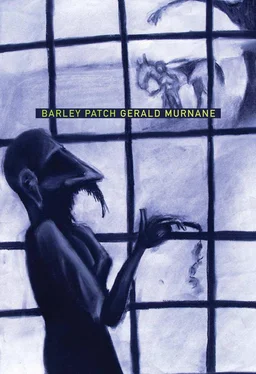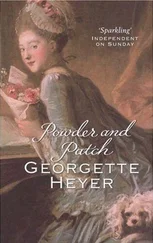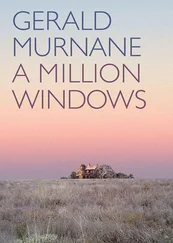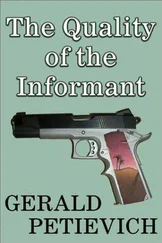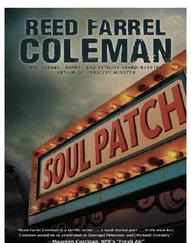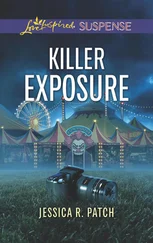Gerald Murnane - Barley Patch
Здесь есть возможность читать онлайн «Gerald Murnane - Barley Patch» весь текст электронной книги совершенно бесплатно (целиком полную версию без сокращений). В некоторых случаях можно слушать аудио, скачать через торрент в формате fb2 и присутствует краткое содержание. Год выпуска: 2011, Издательство: Dalkey Archive Press, Жанр: Современная проза, на английском языке. Описание произведения, (предисловие) а так же отзывы посетителей доступны на портале библиотеки ЛибКат.
- Название:Barley Patch
- Автор:
- Издательство:Dalkey Archive Press
- Жанр:
- Год:2011
- ISBN:нет данных
- Рейтинг книги:5 / 5. Голосов: 1
-
Избранное:Добавить в избранное
- Отзывы:
-
Ваша оценка:
- 100
- 1
- 2
- 3
- 4
- 5
Barley Patch: краткое содержание, описание и аннотация
Предлагаем к чтению аннотацию, описание, краткое содержание или предисловие (зависит от того, что написал сам автор книги «Barley Patch»). Если вы не нашли необходимую информацию о книге — напишите в комментариях, мы постараемся отыскать её.
Barley Patch — читать онлайн бесплатно полную книгу (весь текст) целиком
Ниже представлен текст книги, разбитый по страницам. Система сохранения места последней прочитанной страницы, позволяет с удобством читать онлайн бесплатно книгу «Barley Patch», без необходимости каждый раз заново искать на чём Вы остановились. Поставьте закладку, и сможете в любой момент перейти на страницу, на которой закончили чтение.
Интервал:
Закладка:
In mid-1957, six months after I had passed the matriculation examination for the University of Melbourne and had been expected to go on to study arts or law, I was working as junior clerk in the offices of the State Electricity Commission. I was by no means discontented. I spent most of my free time in writing poetry. During most of my lunch-hours, I walked to the State Library of Victoria and read biographies of twentieth-century poets. Whenever I walked through the area reserved for newspapers and periodicals on my way to the central reading room, I used to notice a certain sort of reader. This person was always a male in early middle-age. He was dressed as the older males were dressed in the building where I worked. He read continually from newspaper after newspaper fetched for him by the sour-faced men in dust-coats who fetched and carried for the public. Always he read a Saturday newspaper followed by a Monday newspaper, making notes the while on a cheap note-pad. He was, of course, trying to unlock the secret of horse-racing; trying to discover the betting-method that would free him from daily employment and would allow him to follow his true task, whatever it might have been. As it happened, I was not then myself driven by the urge to find the perfect betting-method, the philosopher’s stone of the gambler. I was able to look calmly on those driven men, one or another of whom might have been the nearest I have ever seen during my lifetime to an embodiment of Matthew Arnold’s Scholar Gipsy.
When I thought of Huldah as being past marriageable age, I supposed that she had discovered at an early age a project or an enterprise so manifold and so demanding and yet so inviting that she had given herself to it wholly. While her siblings and her contemporaries concerned themselves with courtships and careers, Huldah pulled down the blinds in her room and locked the door and then began the writing or the reading or the drawing of diagrams or maps that made up the outer, visible part of her life’s work. (I was never able to conceive of Huldah’s or the Scholar Gipsy’s tasks as not being concerned with texts or diagrams or maps.) Of course, if Huldah was busy in her room with her lifelong task, I was not likely to attract her interest by wandering around the grounds of Kinie Ger as though the visible world was all that I knew. My only hope of learning about her all-absorbing task was, perhaps, to lock myself in my own room in the sprawling homestead for months or even years until Huldah got to hear of my unusual ways and sent for me.
Huldah did sometimes receive people in her room. After the first of the murders that were the main items in the plot, so to call it, of The Glass Spear , two detectives from some or another far-away town interviewed her. I have long since forgotten whether or not the narrator of The Glass Spear was one of those unconvincing personages commonly occurring in fiction of the twentieth century: those narrators who claim to know the thoughts and feelings of more than one character in the work of fiction. I am therefore unable to explain how I learned the fictional fact that Huldah underwent her interview while sitting in an armchair in her room with a black (or was it a white?) veil covering her completely. Perhaps a crude illustration appeared on one of the pages of The Australian Journal . Certainly, the interview went well for Huldah. During the remainder of the story she was under no suspicion.
After I had read about Huldah’s having been interviewed, I surely hoped that I myself, ghost-character, might somehow be granted an audience. If I could have thought of myself as a cousin or a distant relative of Huldah, I might have dared to ask her some of the questions that I had for long wanted to ask her, but whenever I thought of myself as hearing only a female voice from behind a thick veil, I could only suppose that Huldah was a stern aunt of mine.
Huldah may not have been a murder-suspect, but The Glass Spear was one of those so-called mystery novels the narrator of which conceals essential information from the reader in order to surprise him or her at last, and so, for all that I can recall, Huldah herself might have stood revealed at last as the murderer or, at least, an accessory to the murders. The only details I remember from the day when my mother brought home the latest copy of The Australian Journal and read for herself the last episode of The Glass Spear , after having promised me that she would not let slip a word about the ending before I had been able to read it for myself — the only details relate to the unveiling of Huldah. Far from being a recluse in a locked room, Huldah spent most of her time in the open air. She was the Aboriginal woman who appeared as a minor character in the novel, the Mary whose epithet I have forgotten. The story of Huldah’s seeming dual identity was explained to the younger characters almost at the end of the book in a long passage purporting to come from the mouth of Huldah’s brother, who had known her secret all along. I seem to recall that I found this passage strained even as a child; that it brought to my mind an image of the author himself, he who had made up, as it were, Kinie Ger and all the characters who lived there. I was listening to the author while he tried to persuade me to believe that his characters could well have existed in the place commonly called the real world. (I long ago gave up trying to justify the reading or the writing of fiction on the grounds that either of those enterprises relates in some way to the so-called real world in which some persons write fictional texts. For the past fifty and more years, I have been more convinced of the fictional reality, so to call it, of Huldah, the recluse in the locked room, she who never existed, than I have been convinced of the existence of Huldah/Mary, she who can be said to have existed in The Glass Spear and who may well have been the fictional counterpart of someone who once existed in the world where I sit writing this sentence.)
Mercifully, the word gene was not yet in common usage in the early 1950s. Sidney Hobson Courtier was therefore unable to concoct the mock-scientific explanation that a novelist nowadays would use to explain the existence of Huldah/Mary. He could only claim that one of Huldah’s male forebears had fathered a child with an Aboriginal mother; that Huldah was a descendant of that child; that Huldah happened almost wholly to resemble her one Aboriginal forebear rather than her many Anglo-Celt ancestors; that Huldah’s appearance as a child had caused her parents and her siblings to be so ashamed of her that they and she had devised the way of life that she later led.
In the rear pages of every issue of The Australian Journal was the section called Journal Juniors. It comprised a cheerful letter from the person-in-charge together with letters from children in every state of Australia. The person-in-charge was known only by a female given name, but each child-contributor had his or her full name and address published. I joined the Journal Juniors in 1950, intending to write often to the person-in-charge. I wanted my writing to be read in particular by a certain girl of about my own age who lived in an inland town in Queensland. This girl was published in almost every issue of the magazine, and whereas most children wrote about their pets or holiday outings, the girl from Queensland wrote letters that an adult might have praised as highly imaginative. I recall a long letter in which she told how she made bearable her nightly task of drying the dishes for her mother. The girl imagined that each teacup was a young female personage while each mug or jug was a young male personage. She gave a name to each personage and imagined certain of them as being in love with certain others. When she, the girl, had a fancy to promote one or another courtship, she would store the two crockery-personages overnight in the same part of the cabinet. In another sort of mood, she would keep a certain pair apart for night after night while she imagined them as yearning to meet or even trying to send messages to one another. There was much more to the game, all of it reported in faultless, confident-sounding sentences.
Читать дальшеИнтервал:
Закладка:
Похожие книги на «Barley Patch»
Представляем Вашему вниманию похожие книги на «Barley Patch» списком для выбора. Мы отобрали схожую по названию и смыслу литературу в надежде предоставить читателям больше вариантов отыскать новые, интересные, ещё непрочитанные произведения.
Обсуждение, отзывы о книге «Barley Patch» и просто собственные мнения читателей. Оставьте ваши комментарии, напишите, что Вы думаете о произведении, его смысле или главных героях. Укажите что конкретно понравилось, а что нет, и почему Вы так считаете.
